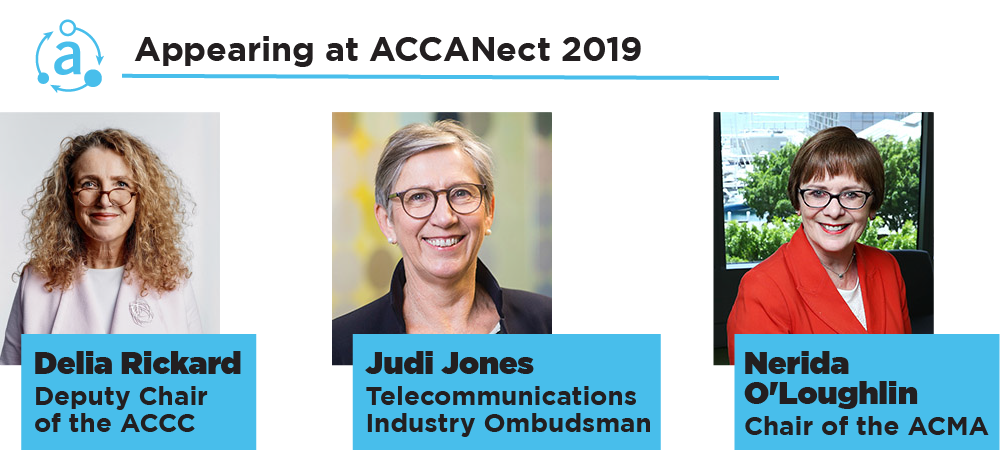- Details
The Government has contracted ACCAN to research the ways in which people who are Deaf, Deafblind, or have hearing or speech impairment use the new Accesshub website.
Accesshub is a telecommunications information website provided by the Australian Government. Accesshub provides a range of information resources about how to use the National Relay Service (NRS) as well as information about mainstream communications equipment and services which may be suitable alternatives to the national relay service for some people.
The focus groups will be held in Sydney, Melbourne and Hobart with people who use the NRS and have used Accesshub. We are interested in how you currently use the Accesshub website, what you think about it, and how it could be improved. Participants will receive a $100 gift card to thank them for participating in the project. Light refreshments will also be provided.
Read more: Accesshub Focus Groups
Write comment (0 Comments)- Details
ACCAN is seeking nominations for Directors to fill three (3) vacancies on its Board.
In accordance with the ACCAN Constitution, the 2019-2020 ACCAN Board will consist of nine (9) members1. Six (6) positions are continuing Directors from the 2018-2019 Board. Three (3) Directors are retiring from the Board but may be eligible for re-election as stated in the ACCAN Constitution.
In accordance with the ACCAN Constitution Board members are elected for a three year term.
In order to ensure an appropriate balance, the Board is particularly seeking candidates with legal and regulatory expertise or experience; and/or experience in financial management and governance in a not for profit organisation; and/or with lived experience of disability; and/or an understanding of the issues affecting young consumers and/or small businesses.
Read more: Call for nominations for the ACCAN Board
Write comment (0 Comments)- Details
ACCAN has made some submissions to the Australian Communications and Media Authority (ACMA) regarding caption exemption draft orders for Fetch TV, Foxtel Cable Television, Optus Vision Media, Selectra and Telstra Pay TV.
In our submissions we urged the ACMA to deny the exemption applications, as Australians who rely on closed captions should be ensured the same functional access to television services as other Australians. We continue to call for equitable access to video programming, including subscription television services, for people who are Deaf or have hearing impairment.
- Details
The Australian Communications and Media Authority (ACMA) has conducted a second-round of consultation on the Emergency Call Service (ECS) Determination. A draft ECS Determination 2019 was provided for comment, in which a number of changes have been made based on the results of the first consultation process (completed in November 2018). It also outlines options for a trial of alternative call handling methods for SIM-less calls to the ECS.
Read more: Second-round consultation: Review of the ECS Determination 2009
- Details
The Department of Industry, Innovation and Science undertook a public consultation on Australia’s Ethics Framework in relation to Artificial Intelligence (AI).
ACCAN made a brief submission to this consultation. We outlined that consumer safeguards must be put in place to protect consumers from any unintended outcomes of new technology such as AI. We stated that compliance and enforcement procedures in relation to the ethical use of AI are necessary to protect consumers, as existing human rights, legislative and regulatory frameworks alone cannot completely protect consumers against unethical behaviour.
Read more: DIIS consultation: Australia's Ethics Framework for AI
- Details

The NBN provides the wires that deliver broadband and fixed phone services to your home. Your telco pays the NBN owner, nbn co, to use the NBN and sell you broadband. This means that the service that you get from your telco is directly related to the service that nbn co gives telcos. This includes how long it takes to connect broadband customers, whether appointments with technicians are kept, the number and length of outages you may experience, or the speed of your broadband at different times of day.
Read more: NBN Wholesale Service Standards – What the ACCC Inquiry Means For You
Write comment (0 Comments)- Details

Telstra is once again making changes to its mobile phone plans. If you are an existing Telstra mobile customer, this may impact you.
From 26 August 2019, Telstra will be moving hundreds of thousands of customers off their old mobile phone plans and onto one of Telstra’s new plans.
Starting this week, Telstra is contacting customers who will be affected by this move. It’s important that you keep an eye out on your email inbox or letter box so that you know if you are one of the hundreds of thousands of customers who will be impacted by these changes.
Read more: Telstra phone plan changes
Write comment (5 Comments)- Details
ACCAN often hears stories from consumers spending hours waiting and trying to resolve problems with telcos (eg on the phone, in shops, or via chat windows). We know that all this time has a value to consumers but what is the cost?
A new report released from ACCAN provides advice on how to estimate the cost of consumer wait time.
- Details

ACCAN often hears stories from consumers spending hours waiting and trying to resolve problems with telcos (eg on the phone, in shops, or via chat windows). We know that all this time has a value to consumers but what is the cost?
A new report released today from ACCAN provides advice on how to estimate the cost of consumer wait time.
Read more: Please hold: costing telco customer wait times
Write comment (0 Comments)- Details

At ACCAN's national conference, ACCANect 2019, attendees will have the opportunity to hear from experts from across the telco industry, including Delia Rickard - Deputy Chair of the ACCC, Nerida O'Loughlin – Chair of the ACMA and Judi Jones - Telecommunications Industry Ombudsman.
These three organisation protect and enforce telco consumer safeguards in Australia. While they each handle different aspects of telco consumer protection, together they work towards safeguarding Australian telco consumers.
Read more: ACCANect 2019 Sneak Peek – ACCC, ACMA, and TIO on reliability
Write comment (0 Comments)- Details
Download: ![]() ACCAN Magazine - Issue 32 Winter 201911.65 MB
ACCAN Magazine - Issue 32 Winter 201911.65 MB
Download accessible version: ![]() ACCAN Magazine Issue 32 - Winter 2019 - Accessible Version50.56 KB
ACCAN Magazine Issue 32 - Winter 2019 - Accessible Version50.56 KB
- Details
Last week the communications regulator, the Australian Communications and Media Authority, announced the registration of a new version of the Telecommunications Consumer Protections Code.
What does this mean for telecommunications consumers?
The Code is important because it contains rules that govern the life cycle of the customer’s relationship with their telco. From the telco’s advertising, to sales and contract/service agreements, through to customer service and billing, and switching telcos. It also covers rules about what telcos have to do to if customers have difficulty paying their bills, how they handle credit and debt management, and financial hardship.
The Code has been around since 2007, and this is its second major revision.
Read more: TCP Code update – Consumer safeguard remains flawed
Write comment (0 Comments)